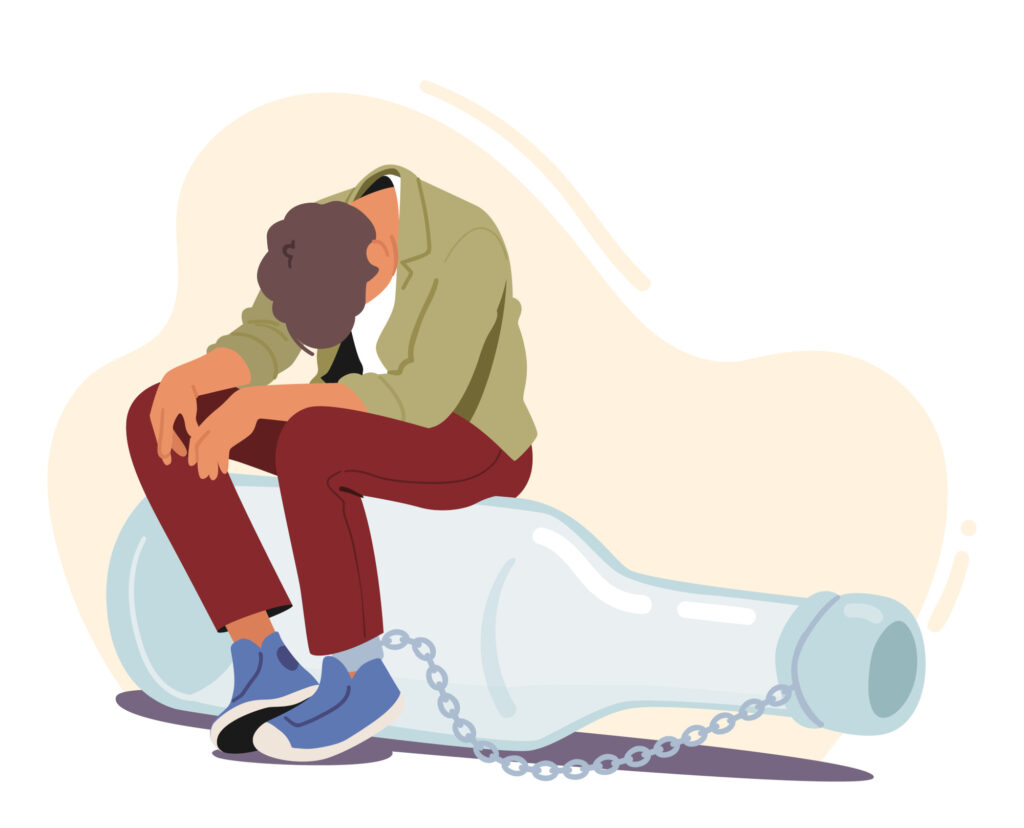Drinking alcohol is a common part of many social activities and personal routines. But it can be hard to tell the difference between drinking occasionally and becoming addicted to alcohol. The goal of this quiz and guide is to make you think about how much you drink and help you answer the question, “Am I an alcoholic?” Even if you don’t believe it right now, remember that seeking help is a sign of strength, not weakness.
What is Alcohol Use Disorder?
Before diving into the quiz, it’s essential to understand what Alcohol Use Disorder (AUD) entails. AUD is a medical condition in which a person can’t stop or control their drinking, even when it’s hurting them socially, at work, or in their health. A diagnosis is made based on certain factors and can range from mild to severe.

Questions to Ask Yourself
- How Often Do You Drink?
- Think about how often you drink. Do you drink every day, once a week, or only on special events? Frequent drinking can increase the risk of developing AUD.
- Do You Drink More Than You Intend To?
- You may have had times when you meant to have one or two drinks but ended up having more. This loss of control is a common sign of someone who needs to admit, “I am an alcoholic.”
- Have You Tried to Cut Down or Stop Drinking Without Success?
- You may have made attempts to reduce or quit drinking and whether those attempts were unsuccessful. Repeated unsuccessful efforts indicate a potential problem.
- Do You Spend a Lot of Time Drinking or Recovering From Drinking?
- Add up the amount of time you invest in drinking and recovering from its effects. Significant time spent in these activities can disrupt your daily life and responsibilities.
- Do You Experience Cravings for Alcohol?
- Be honest about whether you have strong urges or cravings to drink. Cravings can be powerful and difficult to resist, signaling a deeper issue.
- Has Your Drinking Caused Problems at Home, Work, or School?
- Think about any negative impacts your drinking has had on your personal and professional life. Problems in these areas can indicate the presence of AUD.
- Do You Continue to Drink Despite Knowing the Harm It Causes?
- Try to remember times you kept drinking even though you are aware of the physical, emotional, or social harm it is causing. This awareness yet continuation is a key indicator of AUD.
- Do You Need to Drink More to Feel the Same Effects?
- If you’ve developed a tolerance, it means you need more alcohol to achieve the same effects you used to feel with less. Tolerance is a sign of dependence.
- Do You Experience Withdrawal Symptoms When Not Drinking?
- Think about whether you experience withdrawal symptoms such as shakiness, sweating, nausea, or anxiety when you’re not drinking. Withdrawal symptoms indicate physical alcohol dependence.
- Have You Given Up Activities You Once Enjoyed to Drink?
- You might want to think about activities or hobbies you used to enjoy but have given up for drinking. Losing interest in things you used to enjoy can be a sign of a problem.
Be Honest About Your Answers
Take a moment to think about your answers to these questions. There may be a time for you to get professional help if these questions hit home and you may have come up with an answer to your big question: “Am I an alcoholic?”. Alcohol Use Disorder is a very bad illness, but it can be cured. The first step toward healing is recognizing the signs and getting help.
Where to Get Help and Support
If you think you might be having problems with drinking, you need to get help right away.
Here are some steps you can take:
- Consult a Healthcare Professional: A doctor or mental health professional can provide a diagnosis and discuss treatment options with you.
- Join a Support Group: Groups like Alcoholics Anonymous (AA) offer support from other members and can be very helpful.
- Look Into Therapy: Counseling or therapy can help you understand the underlying issues contributing to your alcohol use and develop coping strategies.
- Explore Treatment Programs: Inpatient or outpatient treatment programs offer structured environments to support your recovery journey.
Finding the Right Help
The first thing you need to do to get your life back from drinking is to learn the signs. If you can relate to some of the questions in this quiz, you need to get help right away. It takes work to get better, but you don’t have to do it by yourself.
The Grove Recovery, an alcohol rehab in California, offers full treatment plans that are made to fit your specific needs. Our caring staff of professionals is committed to giving you the help and tools you need to succeed in your recovery. We are here to help you every step of the way, whether you need detox, inpatient or outpatient programs, or continued counseling and support.
Don’t wait to take control of your life. If you’d like to learn more about your results and speak to a clinician today, call us at (657) 221-1196. Contact The Grove Recovery and start your path to a healthier, alcohol-free future. Get in touch with us right away to set up a meeting and find out more about how we can help you stay sober.

Call us today and one of our specialist can help you get stated and give you the information you need to begin your recovery.
Frequently Asked Questions
What Are the Signs of Alcoholism?
If you’re asking yourself, “Am I an alcoholic?” there are ways to find the answer. Signs of alcoholism include frequent drinking, inability to control drinking, spending a lot of time drinking or recovering from drinking, experiencing cravings, and continuing to drink despite negative consequences.
What is the Difference Between Heavy Drinking and Alcoholism?
Heavy drinking means drinking a lot of alcohol in a short amount of time or usually drinking more than the recommended amount. Alcoholism, also known as Alcohol Use Disorder (AUD), is when someone has an overwhelming need to drink, can’t control how much they drink, and has withdrawal signs when they don’t drink.
Heavy drinking can lead to alcoholism, but not all heavy drinkers are alcoholics. Alcoholism is defined by an inability to function normally without alcohol, which has far-reaching consequences for health and daily life.
What Are the Different Types of Alcoholics?
Now you may be asking yourself, “How do I know if I am an alcoholic?” There are several types of alcoholics, often categorized by their drinking patterns and behaviors:
- Young Adult Subtype: Typically, young adults rarely seek help for their drinking problem. They don’t drink as often, but when they do, they drink a lot.
- Young Antisocial Subtype: Young people who have a family background of alcoholism and antisocial personality disorder. They often begin drinking early in life and drink in ways that are harmful.
- Functional Subtype: Individuals who manage to maintain a stable job and family life despite their alcohol addiction. They often drink every day but maintain the appearance of normalcy.
- Intermediate Familial Subtype: Middle-aged individuals with a significant family history of alcoholism. They often have co-occurring mental health issues such as depression.
- Chronic Severe Subtype: The most severe form, often involving a long history of drinking, multiple failed attempts at sobriety, and numerous health problems related to alcohol. This subtype usually requires intensive treatment.
Understanding the different types of alcoholics can help tailor treatment approaches to the individual’s specific needs.
How Is Alcoholism Diagnosed?
A doctor will diagnose alcoholism, also known as Alcohol Use Disorder (AUD), if a person drinks more than they planned, tries to cut down but fails, and experiences withdrawal symptoms.
Can Alcoholism Be Treated?
Yes, alcoholism is treatable. Treatment options include therapy, support groups, medication, and inpatient or outpatient treatment programs. The best approach depends on the individual’s specific situation.
What Should I Do if I Think I’m an Alcoholic?
If you suspect you have a problem with alcohol, seek help from a healthcare professional. They can provide a diagnosis and recommend treatment options. Support groups and therapy can also be valuable resources.
Is It Possible to Recover from Alcoholism?
Yes, recovery from alcoholism is possible. With the right treatment and support, many people successfully manage their addiction and lead fulfilling, alcohol-free lives.




